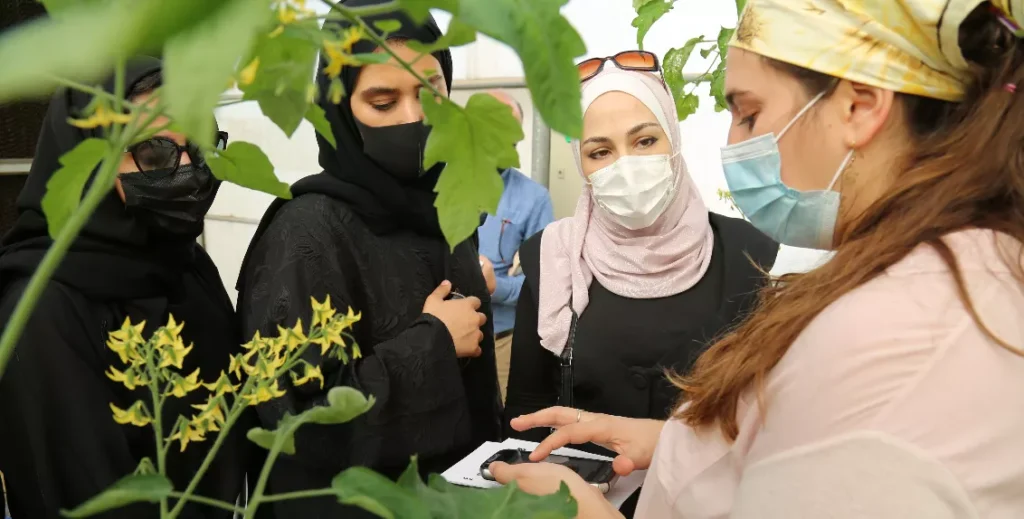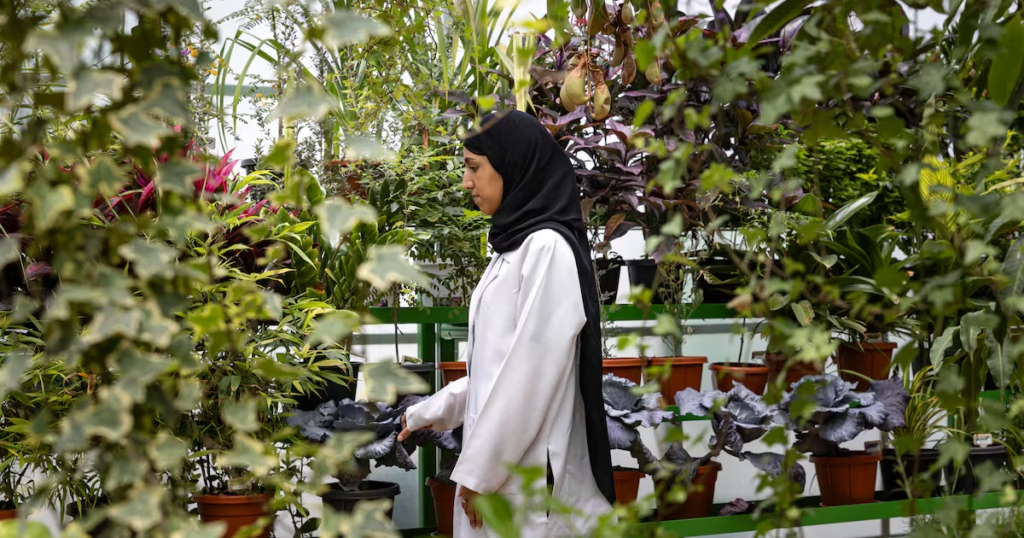In a bold move that blends cutting-edge education with sustainable technology, Dubai Medical University has officially launched two groundbreaking projects: advanced AI innovations in medical education and an AI-powered smart greenhouse. This dual initiative positions the institution at the forefront of the UAE’s technology-driven future and signals a major shift in how we prepare the next generation of doctors.
Smarter Classrooms: AI Innovations in Medical Education
Dubai Medical University is embracing artificial intelligence to modernize its entire learning environment. The goal is to make learning more effective, personalized, and hands-on for medical students.
The AI-powered education platform tracks students’ learning patterns and adjusts the content in real time. If a student struggles with a particular concept—such as human anatomy or pharmacology—the system responds by providing more focused lessons and additional support in that area.

In addition to smart lesson planning, students now use interactive simulations and virtual reality tools. These tools allow them to examine 3D models of organs, explore disease processes, and even practice virtual surgeries in a safe, controlled setting. It’s a game-changing way to bridge the gap between textbooks and real-life experience.
“Artificial intelligence helps us teach critical thinking and clinical judgment,” said Dr. Laila Mansoori, head of educational technology. “Our students are not just memorizing—they’re learning how to make decisions.”
Real-Time Learning Feedback for Students and Teachers
Another major benefit of AI-powered classrooms is real-time feedback. Every action a student takes—whether answering a quiz question or completing a lab task—is tracked and analyzed.
Based on this data, the system generates weekly progress reports. These highlight the student’s strengths and areas that need improvement. This allows both the student and the instructor to take immediate action and improve learning outcomes.
A built-in AI chatbot also assists students with questions around the clock. It can explain concepts, guide them through exercises, or provide practice tests as needed.
The result is faster learning, higher retention, and improved academic performance.
AI-Powered Greenhouse: Where Health Meets Sustainability

Beyond medical classrooms, the university is also investing in the future of health through agriculture. Its new AI-powered greenhouse is a hub for research, learning, and environmental responsibility.
Fitted with advanced sensors and machine learning algorithms, the smart greenhouse monitors and adjusts everything from temperature and humidity to soil nutrients and light. This ensures optimal conditions for plant growth with less water and fewer chemicals.
The AI system learns from each crop cycle and adapts to seasonal patterns, pest activity, and nutrient requirements. This results in faster-growing, more nutritious plants with lower environmental impact.
Why a Medical University Is Growing Its Own Food
Why is a medical school investing in a greenhouse?
The answer lies in the connection between health, diet, and environment. Poor nutrition is a leading cause of chronic diseases such as diabetes, heart disease, and obesity. The greenhouse allows students to study the impact of clean, organic food on public health.
“This is not just about growing vegetables,” said Dr. Yasir Al Tamimi, Director of the Smart Health and Sustainability Lab. “It’s about preventing disease through healthy living.”
The greenhouse is being used to:
- Grow organic produce for campus consumption
- Research medicinal plants and nutrient-dense crops
- Study the psychological effects of green spaces on wellness
- Train students in food-based health strategies
Connecting AI, Education, and Wellness
What makes this initiative unique is how it integrates technology, medical education, and sustainability. It demonstrates that solving health challenges requires more than medical treatment—it also involves understanding our food systems, environment, and lifestyle choices.
Students are not only learning about diseases; they’re being trained to think holistically about health, prevention, and long-term well-being.
This is particularly relevant in the UAE, where health promotion, water conservation, and food security are national priorities.
Inspiring a Global Education Model
Other universities are taking notice. Dubai Medical University has received inquiries from institutions across Europe, Asia, and North America interested in adopting similar AI-powered systems.
Technology companies and healthcare organizations are also exploring research partnerships to expand on the work being done in both the classroom and the greenhouse.
This blend of smart learning and sustainable science could become a global model for modern medical education.
What’s Next: From AI Exams to Urban Farming
The university has ambitious plans for the future. Upcoming innovations include:
- AI-generated patient scenarios for clinical exams
- Wearable device integration to monitor student health metrics
- Urban farming projects that bring fresh food to city centers
- Expanded sustainability research in partnership with hospitals
Each development will continue to link academic knowledge with real-world applications in medicine and public health.
Student Voices: Learning Like Never Before

Students say they feel more engaged and confident thanks to the AI tools.
“I understand topics so much faster now,” said Sarah Al Mazrouei, a third-year student. “And using virtual simulations to practice surgery is exciting—it feels like the future of learning.”
Faculty members also see the difference. “This system supports both students and teachers,” said Professor Nadim Qureshi. “It lets us focus more on mentoring and guiding students rather than managing administrative tasks.”
Conclusion: Leading the Future of Health and Learning
Dubai Medical University’s AI-powered classrooms and smart greenhouse are not just upgrades—they represent a new vision for the future of healthcare, learning, and sustainability.
By combining AI innovations in medical education with a commitment to environmental health, the university is equipping future doctors to think critically, act responsibly, and lead with purpose.
This is not just about training doctors. It’s about developing global health leaders who understand the deeper connections between science, society, and the environment.
Read More: RAK’s Higher Education Institutions Add New Degree Programs













